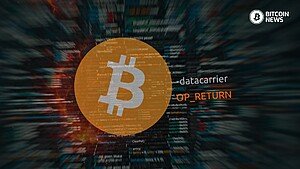Saifedean Ammous’s recently released ‘The Bitcoin Standard’ raises fascinating insights into peer-to-peer digital cash as a new standard of currency; the book highlights the far-reaching implications for global societies and most notably, Bitcoin’s latent potential to end perpetual war.
War is an incredibly expensive, resource-intensive exercise of violence that is more often than not entirely against the will of the people; in his book, Ammous postulates that ‘easy money’ is one of the tools that keeps the war machine active.
Easy Money
According to Investopedia:
“Easy money, in academic terms, denotes a condition in the money supply. Easy money occurs when the US Federal Reserve allows cash flow to build up within the banking system as this lowers interest rates and makes it easier for banks and lenders to loan money. Therefore, borrowers can acquire money more easily from lenders.”
Easy money is contrary to ‘hard money’ – fiat currency was previously backed by the ‘guarantee’ of it being redeemable in gold or precious metals. That being said, the gold standard doesn’t exactly imply that citizens can receive gold in return for their fiat, but instead, that the value of government-issued money is tied to the exchange rate of a certain quantity of gold.
With this, paper money flourished as a substitute for gold in transactions, bringing with it several advantages, one of the most prominent being that government spending had a calculable cost. This provided a distinct level of transparency for citizens as they could better understand the value of their money, knowing it was backed by something ‘hard’, making it more difficult for governments to manipulate the economy.
Perpetually printing war money
However, now that nothing is backing the value of money, it can just be printed at any point should it be justifiable, which it often is in the US, especially under war conditions. Trillions of dollars are spent on war by the US, and that could matter little when, thanks to loopholes in present laws, the US Treasury could choose to print a platinum coin and assign whatever value it wishes to it, removing the need to increase taxation or other measures to cover the cost.
Today, it is incredibly difficult for populations without something ‘hard’ backing their fiat to determine the actual cost of their government’s spending. Additionally, the people are given little to no incentive to save money for the long haul, considering that the future supply of the money is steadily and easily increased to an unknown limit.
Bitcoin bites back hard against war
Ammous brings Bitcoin into the picture, introducing it as the “hardest money ever invented”; Bitcoin commentator Roger Ver aptly summarized the situation in a statement made out to Antiwar.com:
“Bitcoin is so important to those who value peace because it undermines the ability of the state to fund wars via inflation. Before the era of central banking, wars were over quickly because the governments funding them would run out of money quickly. If the world is using Bitcoin, then governments will no longer have the ability to print money at will to fund their wars of aggression.”
The Bitcoin Standard
The Bitcoin standard as a neutral international economic model has great promise; Ammous makes the argument that international stability is “as hopeless as attempting to build a house with an elastic measuring tape whose own length varied every time it was used”.
Because of the absolute finite supply of Bitcoin, it can become an international unit of monetary measurement, whereas the foreign exchange market is typically speculative. Were this to become the case, countries could better manage their national currencies, in line with the Bitcoin exchange rate.
Economist Warren E. Weber made similar arguments stating in his 2015 paper:
“Thus, I assume that in addition to Bitcoin, the addresses in the decentralized ledger, there would be Bank of Canada dollars, Federal Reserve dollars, ECB euros, Bank of England pounds, and so forth. These central bank currencies would be separate currencies that circulate alongside Bitcoin. They would be tied to Bitcoin because they would be redeemable in Bitcoin on demand.”
Bitcoin appears to possess the capacity for at least making it more difficult, if not impossible, to conduct endless wars, thanks to its almost gold standard-like qualities. Indeed, a true solution to ending conflict requires populations choosing peace over war, and may also need the input of the public against their respective governments to wind down the military-industrial complex.
But, should Bitcoin find itself at the centre of international economic models, there is a very real chance to significantly reduce the chances for endlessly-funded wars.










